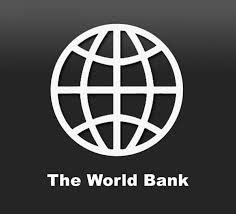FCPAméricas Blog
World Bank Sanctions “Stock Taking”: Corporate group treatment and other hot topics under review
7.18.2013
 The World Bank is asking for your help in a “stock-taking” exercise to evaluate the system by which it sanctions companies and individuals found to have engaged in corrupt, fraudulent, collusive, coercive, or obstructive practices in connection with Bank-financed projects. The consultation is part of a larger review by the Bank’s Legal Vice Presidency and others aimed at improving the system. The final report will be submitted to the Audit Committee of the Bank’s Board of Executive Directors in late 2013. This is a welcomed step toward making a relatively new process better.
The World Bank is asking for your help in a “stock-taking” exercise to evaluate the system by which it sanctions companies and individuals found to have engaged in corrupt, fraudulent, collusive, coercive, or obstructive practices in connection with Bank-financed projects. The consultation is part of a larger review by the Bank’s Legal Vice Presidency and others aimed at improving the system. The final report will be submitted to the Audit Committee of the Bank’s Board of Executive Directors in late 2013. This is a welcomed step toward making a relatively new process better.
To submit your comments in the process, go here.
The request for input comes at a time when the sanctions system is experiencing significant developments. Primary among them is the publication of the Sanctions Board Law Digest, making public the details of the holdings from the first group of Sanctions Board decisions. Since then, each decision by the Sanctions Board has been published here. Some of these decisions have been more controversial than others. Of note is the Board’s recent decision to overturn the debarment of a Colombian contractor who participated in a water supply, sewerage, and environmental management project. In that decision, the Board was critical of the work conducted by the Bank’s investigations unit.
The survey addresses multiple “hot topics,” some of which have been discussed previously by FCPAméricas. For example, it asks for views on Negotiated Resolutions, previously discussed here. It asks about the efficiency of the system, including the time that it takes to process cases. It asks about “debarment with conditional release,” the baseline sanction for companies that violate the rules. Under this concept, a company can be released from debarment if it can show that it has met World Bank compliance program standards.
One highly important area covered in the survey is the way in which the Bank treats corporate groups. Multilateral development banks, including the World Bank, recently adopted harmonized principles for handling corporate groups. The survey asks about them:
The World Bank Group has developed guidance on the treatment of corporate groups, including its approach to sanctioning affiliates of respondents and so-called “successors and assigns”. In your view, does this guidance provide sufficient clarity and predictability? Is more information needed about the Bank’s approach to sanctioning corporate groups? If so, what aspects should the additional information cover?
These principles provide that, among other things, (1) liability within corporate groups will be determined in a fact-based analysis, (2) demonstrable responsibility and control are key in the analysis, (3) willful blindness and failure to supervise can create liability, and (4) successor liability can also apply.
In practice, several issues arise as the Bank attempts to balance effectiveness and fairness in its treatment of corporate groups. For example, how can these rules be applied consistently given the wide range of complicated corporate structures and scenarios of wrongdoing that arise? Should sister companies be sanctioned, and in what circumstances? How does the Bank decide how far up or down the corporate chain to apply responsibility? What types of facts would demonstrate control, responsibility, and willful blindness? And how do Bank investigators with limited powers show such facts? For purposes of circumvention or evasion of punishment, who decides which forms of corporate reorganization are legitimate and which forms are not?
These are difficult issues, and the Bank opens itself to criticism whichever way it decides. Maybe, by giving the public the opportunity to comment now, the Bank works to make the process more legitimate. If so, you should not miss your opportunity to participate. Your opinion just might matter.
The FCPAméricas blog is not intended to provide legal advice to its readers. The blog entries and posts include only the thoughts, ideas, and impressions of its authors and contributors, and should be considered general information only about the Americas, anti-corruption laws including the U.S. Foreign Corrupt Practices Act, issues related to anti-corruption compliance, and any other matters addressed. Nothing in this publication should be interpreted to constitute legal advice or services of any kind. Furthermore, information found on this blog should not be used as the basis for decisions or actions that may affect your business; instead, companies and businesspeople should seek legal counsel from qualified lawyers regarding anti-corruption laws or any other legal issue. The Editor and the contributors to this blog shall not be responsible for any losses incurred by a reader or a company as a result of information provided in this publication. For more information, please contact Info@MattesonEllisLaw.com.
The author gives his permission to link, post, distribute, or reference this article for any lawful purpose, provided attribution is made to the author.
@2013 Matteson Ellis Law, PLLC
Post authored by Matteson Ellis, FCPAméricas Founder & Editor



 Comments
Comments